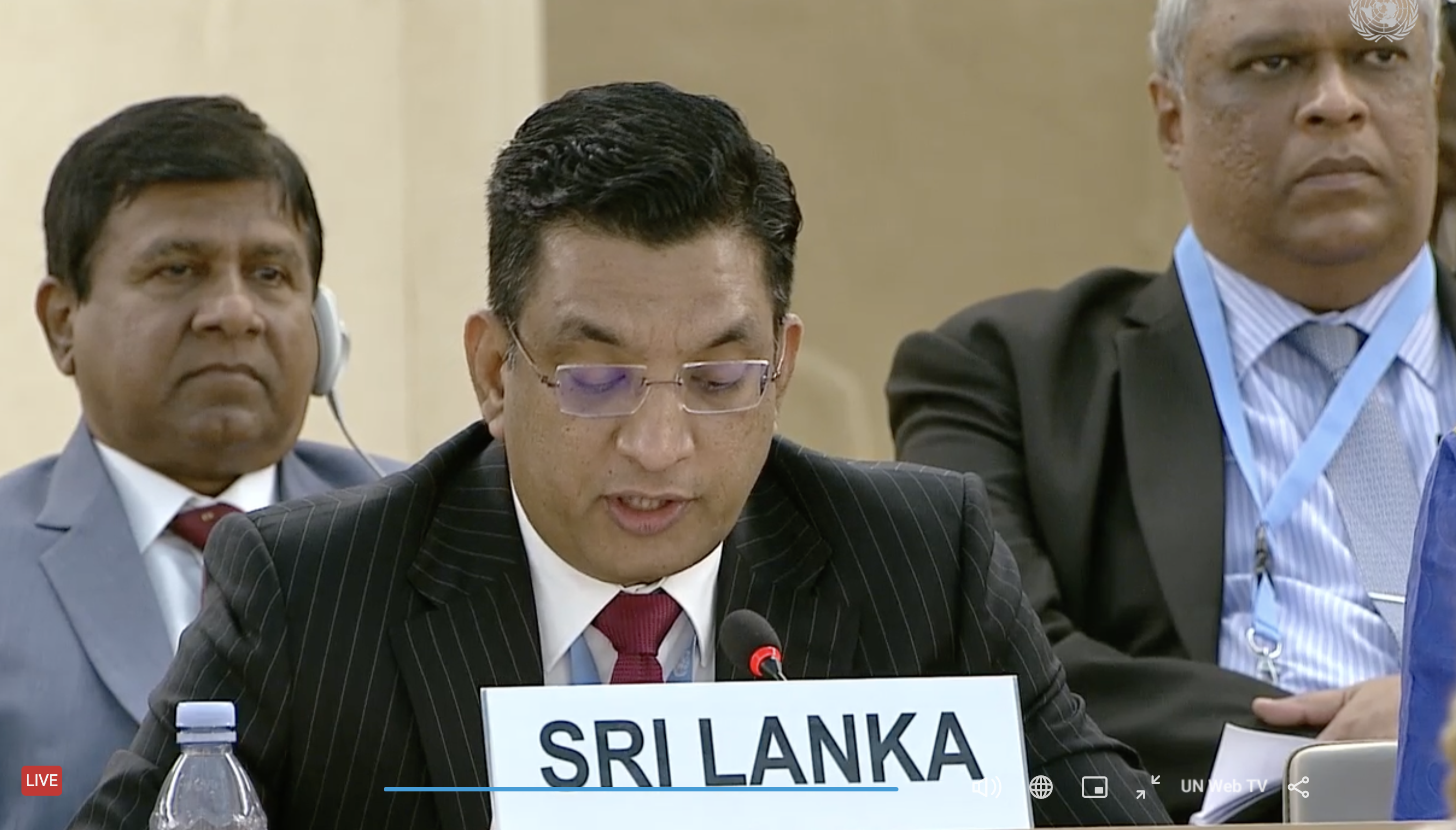
Sri Lankan Foreign Minister Ali Sabry said the government "fundamentally" disagreed with the legitimacy of the UN Resolution 46/1 and claimed that the resolution violates the "sovereignty of the people of Sri Lanka" as the 51st session of the United Nations Human Rights Council opened this morning.
In an interactive dialogue on the UN High Commissioner's report, Sri Lanka's Foreign Minister slammed operative paragraph 6 in Resolution 46/1, which calls on the Office of the High Commissioner for Human Rights (OHCHR) to "collect, consolidate, analyse and preserve information and evidence" that could be used for future accountability processes for the violation of human rights.
Last week, the UN High Commissioner Michelle Bachelet released a scathing report outlining the deepening militarisation, the continued harassment of Tamil victim-survivors, and the deterioration of human rights on the island.
Sabry told the Council that they are "compelled to categorically reject any follow-up measures to the resolution, as well as the related recommendations and conclusions by the High Commissioner."
The minister further added the state "would endeavour to establish a credible truth-seeking mechanism" to address human rights violations and to promote reconciliation.
For decades, Sri Lanka have rejected international accountability mechanisms and claimed that domestic mechanisms would provide truth and justice to Tamil victim-survivors. Although Sri Lanka have established multiple domestic mechanisms and commissions to investigate human rights violations, they have failed to produce any tangible results.
Sabry also claimed that they had "delivered on the onerous task of review and reform" of the Prevention of Terrorism Act (PTA) which has been used for decades to arbitrarily detain Tamils and Muslims.
Despite several assurances to amend the problematic legislation from successive governments, proposed amendments have fallen severely short of international human rights standards.
Bachelet highlighted in her report that Sri Lanka has continued to use the PTA despite assurances to the international community that they had applied a de facto moratorium on its use. However, last month three Sinhala student leaders were arrested under the act for their role in organising and participating in anti-government protests.
Sabry further added that the Office of Missing Persons (OMP) has begun the "process of inquiry and verification". However, since the establishment of the office in 2016, the office has not yet delivered any truth or justice to Tamil victim-survivors. Tamil families of the disappeared have rejected the OMP for lacking independence as well as failing to hold any of the perpetrators to account.
Tamil civil society organisations and activists have also condemned the OMP as a mechanism used by Sri Lanka to "hoodwink" the international community.
Bachelet's report also noted that “although the purpose of the OMP is to trace and search for the missing, it has not been able to trace a single disappeared person or clarify the fate of the disappeared in meaningful ways, and its current orientation is to expedite the closure of files”.
Sabry claimed that the "reconciliation and accountability are being comprehensively addressed through a domestic process" and questioned whether the Resolution "has benefited the people of Sri Lanka."
Over the last few months, Sri Lanka has cracked down on anti-government protesters by carrying out a series of arrests. Throughout the mass anti-government protests, Sri Lanka heavily deployed it's security forces across the capital to suppress any activity.
Despite this, Sabry said that Sri Lanka's "constitutional rights to peaceful assembly and expression guaranteed the democratic space for our people to exercise their rights."
Read the full statement here.
